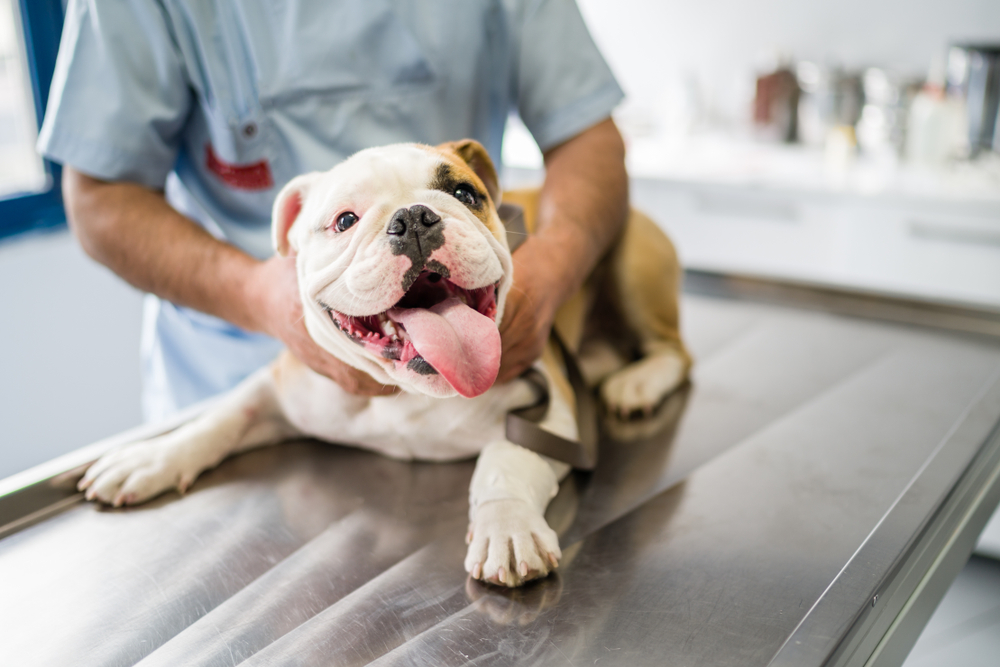Talk to every pet owner, and you will find that their cherished companion is a family member. So, it’s no wonder a steadily increasing array of insurance companies are rolling out plans that provide specialized health coverage for these pets. According to statistics released in 2017 by NAPHIA (North American Pet Health Insurance Association), the total amount spent by US and Canadian people with pets on pet insurance was $1 billion[1]. This figure represents a 17% increase over the previous year. Pet insurance is getting more attention.

“Providing proper care for your beloved pet can be extremely costly, especially if your pet requires ongoing or emergency medical treatment,” said Dr. Kely Paaymans, veterinarian at Crossroads Animal Hospital. “It is important to keep this in mind and budget accordingly to ensure that your pet receives the best possible care.”
Pet insurance helps you avoid stressful decisions between additional expenses and keeping your animal healthy[2]. Find out more about protecting your furry or feathered friend.
Pet Insurance Coverage
It provides a type of insurance that takes care of some medical expenses. In other words, it prevents you from having to bear the financial burden alone. A basic plan covers accidents, wounds and diseases that do not arise from a pre-existing condition[3]. However, a more comprehensive plan can be purchased to pay for tests and diagnoses, hospital stays, medications, dental exams and treatments. In general, regular checkups are excluded, although there may be exceptions.
In addition, there are plans that provide coverage for costs associated with euthanizing your pet. Furthermore, some providers offer substantial reimbursements to insureds who are forced to travel or seek specialist care for rare and life-threatening animal illnesses. As with other types of insurance, the cost of pet insurance increases as you shop for more extensive coverage.
A large majority of these policies are for dogs and cats. However, coverage is also available for the following animals.
- Horses
- Birds
- Exotic animals
- Small mammals
If you want coverage for a non-conventional species, you’ll need to research prices before choosing an insurer that will take it on. That said, insurance applies to most animals. However, some exceptions should be noted.
“Insurance plans typically do not cover dangerous, wild, or poisonous species,” Said Amely Ross from Healthy Paws. “Also, if your area has laws prohibiting the ownership of certain types of animals, it may be difficult to obtain insurance coverage for those pets. It is important to consider these factors when deciding whether or not to get insurance for your pet.”
How It Works
Pet insurance differs from traditional human health protection policies[4]. In both cases, monthly premiums are intended to cover the situations specified in your contract. The scope of coverage depends on the selected plan. Pet plans are typically based on a co-pay model, so they only cover a fraction of the costs related to processes and treatments included in the policy.
Although a few companies partner directly with vets and pet hospitals, others might not. If you choose a provider that does, you’ll only pay the cost-sharing portion of the bill when your animal is receiving medical care. If not, you will be responsible for paying the total bill out of your pocket. Then you will fill out a claim with the company and receive reimbursement[5].
What Does It Cost?
In its 2017 overview of the entire industry, NAPHIA has discovered that the cost of the health and injury insurance policy exclusively averaged about $45 monthly ($540 annually) for dogs and $28 monthly ($336 annually) for cats. No statistics on the cost of non-conventional pets were available.
It is possible to purchase insurance for creatures such as bunnies and gerbils. Still, most professionals in the field of personal finance admit that it is not usually worth the cost. The lifespan of these animals is relatively short. As a result, the insurance costs are usually not worth the risk in most cases.
Optimizing Your Coverage
Experts in pet insurance commonly recommend that you obtain insurance at the beginning of your pet’s life. After all, it is cheaper to insure kittens and puppies than mature ones. The earlier your pet is protected, the less likely pre-existing health conditions will eat away at your wallet.
When considering owning a dog and wondering about pet insurance as a precautionary measure, you should be aware of one other important consideration. Purebred dogs have a much higher cost of insurance. They come from significantly narrower gene pools than those without a pedigree.
“Keeping in mind that purebred dogs may have higher insurance costs compared to mixed breed dogs,” said Ross. “This is due to the fact that purebred dogs often have a smaller gene pool, which can increase the likelihood of certain inherited health conditions. If you are considering getting a purebred dog and are thinking about getting pet insurance as a precaution, it is important to keep this in mind and factor it into your decision-making process.”
Consequently, they are at a much higher risk of genetic and congenital diseases, which in most cases are not covered by insurance policies[6]. Therefore, getting information before welcoming a new pet and taking out coverage for it is essential.
Warnings and Hazards
Usually, policies for pets are meant to address emergencies. They are not intended to pay for routine checkups or vaccinations. Don’t rely on your coverage to offload all financial burdens regarding your companion’s health care.
Also, be aware that many plans do not provide any protection for illnesses and health problems caused by congenital or pre-existing conditions. Depending on the pet’s breed, some health problems are more common than others. So, if the veterinarian who treats your animal suspects that the health problem is due to a genetic cause or one that began before you took out the policy, the expenses may not be protected. Similarly, it is unlikely that your insurer will reimburse you if your animal comes down with a disease or condition that was preventable by a vaccine that you chose not to administer.
In summary, the situation is quite simple. Like any insurance policy, it’s important always to check the fine print. Ensure you fully understand what things are covered and which are not before purchasing them.
Is It Financially Necessary to Purchase Pet Insurance?
You should know that it is not mandatory to have such coverage. While it provides financial security and can help you in challenging financial situations due to unplanned emergencies, many circumstances arise in which it is not a good idea to purchase it. For instance, you probably won’t get enough benefit from a typical policy if your adult cat or dog is in the second half of its lifespan.
“If you choose not to get insurance for your animal, it is a good idea to set aside a fund specifically for any potential accidents or emergencies,” Ross said. “This way, you will be better equipped to handle any unforeseen costs and won’t have to scramble to come up with the necessary funds. If your pet stays healthy throughout its life, this money can be used for other purposes in the future. It is always better to be safe rather than sorry when it comes to your pet’s healthcare.”
Choosing a Good Provider
Several reputable pet insurance providers are out there. When searching for a renowned company, look at these reliable insurers first.
- AKC Pet Insurance[7]
- ASPCA Pet Health Insurance[8]
- Healthy Paws[9]
- Petinsurance[10]
- Fetch[11]
- Pets Best[12]
The list presented here is not comprehensive or exhaustive. Depending on your location, many different providers are available and worthy of consideration. Check with your local authorities or ask your veterinarian to recommend other companies.
References:
- https://money.usnews.com/money/personal-finance/family-finance/articles/how-to-find-the-best-pet-insurance-options-and-find-the-best-plan-for-you
- https://www.thepennyhoarder.com/insurance/best-pet-insurance-companies/
- https://www.readersdigest.ca/home-garden/pets/pet-insurance-basics/
- https://www.rauanimalhospital.com/resources/blog/cats-dogs/everything-you-ever-wanted-know-about-pet-insurance
- https://www.irmi.com/term/insurance-definitions/reimbursement-policies
- https://www.healthypawspetinsurance.com/hereditary-and-congenital-conditions-in-pets
- https://www.akcpetinsurance.com/
- https://www.aspcapetinsurance.com/
- https://www.healthypawspetinsurance.com/
- https://www.petinsurance.com/
- https://www.fetchpet.com/
- https://www.petsbest.com/








